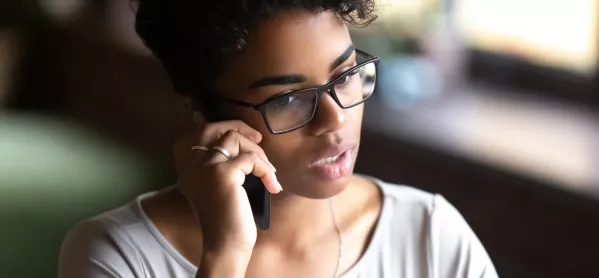As a former teacher turned social worker, I have watched with great interest as schools have adapted to new requirements in regard to safeguarding during the Covid-19 lockdown.
The unprecedented measures schools have been forced to take completely changed the world we knew overnight. And even though a small number of these measures have recently been relaxed, our current world is now very different.
Many roles across the country have simply paused indefinitely, but children and young people continue to need support and in some cases protection. That is why children who are supported by social workers have been allowed to remain in schools, alongside the children of key workers – to safeguard society’s most vulnerable.
Support during lockdown
From a social-work perspective, the cases in which children are deemed to be at significant risk of harm are the cases we already know about. In these cases, there are robust plans already in place to provide support and protection during the lockdown period.
However, the stresses and strains of suddenly being expected to remain in the home for an undetermined period of time is difficult for any family. Families who have, for want of a better phrase “functioned well” for years and who may be unknown to school safeguarding teams (and certainly unknown to social care) have begun to struggle. Some may have reached breaking point.
Continuous support in the form of phone calls and virtual meetings between safeguarding leads and social care teams have taken place regarding “high-profile” cases. However, schools have looked further than these well-known cases and turned their attention to the wider school population.
Teachers play a 'pivotal' role
Many schools have asked teaching staff – in particular, form tutors in secondary schools and class teachers in primary schools – to make weekly calls to all parents and families to check up on classwork and other school activities. Yet due to the pressures of lockdown, these phone calls have often ended up taking a very different tone.
For some families, the occasional call from the class teacher has been the only form of contact they have had during the week. Suddenly, school staff whose contact with parents had previously been limited to parents’ evenings and the occasional chat about progress or behavior, have, in some cases, found themselves being a virtual shoulder to cry on – a mediator and informal counselor.
Teachers I have spoken to over recent weeks have stated that, as a result of these phone calls, they have – often for the first time in their careers – had the time and space to really get to know children and families away from their academic progress. One teacher felt that the experience had revitalized his love for teaching; it made him realise just what a pivotal role a teacher can play in a child’s life. That teacher went on to tell me that when pupils return to school, the deeper connection he now has with both the children and their families would only support his understanding of how best to support pupils academically and pastorally.
During the lockdown, there has not been the number of safeguarding referrals to social care that we would have expected. While there could be any number of reasons as to why this might be, one thing is clear to me: throughout lockdown, teachers and school staff have either directly or indirectly helped many families to overcome issues and bubbling tensions which could have otherwise escalated if it had not been for that lifeline of school support.
Simon Pearse is a local authority social worker.




